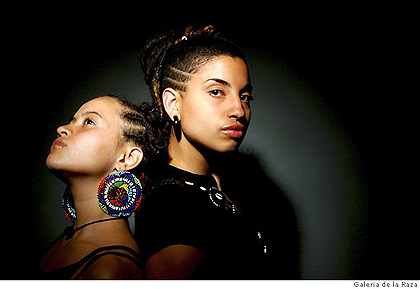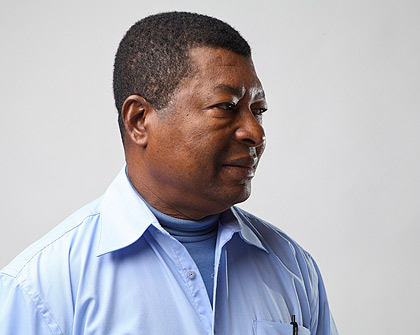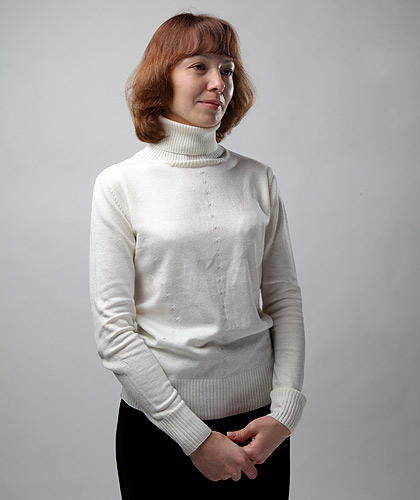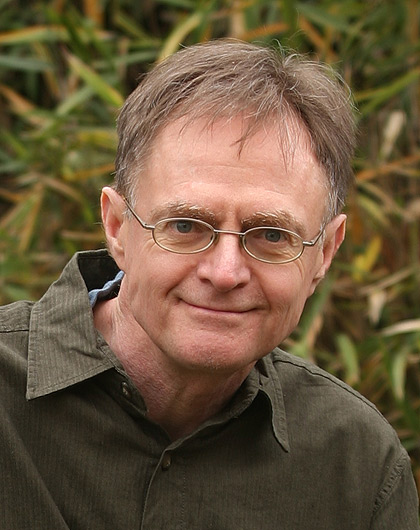Tell your friends “I’m going to spend the weekend at a law conference” and they’ll figure you are in for a really horrible couple days. But when it comes to the UO’s Public Interest Environmental Law Conference (PIELC), attendees are actually in for some fun and excitement.
From intense discussions of social justice and environmental laws to dance parties and bumper stickers that ask you to “Eschew Fecundity,” PIELC has it all. The theme this year, the conference’s 30th anniversary, is “New Frontiers: The Political Crossroads of Our Environmental Future,” and according to Aileen Carlos, one of the law student organizers, the conference will continue its tradition of fostering dialogue and stirring up controversy.
Sometimes that controversy happens at the panels. PIELC co-organizer Bob O’Halloran Jr. says the scheduled speakers include activists, public interest attorneys and attorneys from giant corporate law firms. Other times the controversy is a little more stealthy — the halls at PIELC have been stalked by undercover federal agents. And a large portion of PIELC’s conversations happen in those hallways lined with tables from an array of organizations that this year will include Occupy Portland, Oxford University Press, StoveTeam International and Cascadia Wildlands.
Organizer Katie Cummings says PIELC will have panels focusing on the local — Mayor Kitty Piercy and Commissioner Pete Sorenson are among this year’s presenters — as well as panels that are more national and international in scope.
Keynoters run the gamut from the multimedia performance of Climbing PoeTree to Lisa Heinzerling, who was the lead author of Massachusetts vs. EPA, a hugely significant environmental case in which the Supreme Court held that the Clean Air Act gives the Environmental Protection Agency the authority to regulate greenhouse gases.
Environmental geeks will be excited to hear talks by endangered snail darter attorney Zygmunt Plater and by scientist Tyrone Hayes, whose research has shown that the widely used herbicide atrazine chemically castrates and feminizes exposed male amphibians at levels deemed safe by the EPA.
If chemically transgendered amphibians don’t suck you in, go to pielc.org and peruse the variety of topics the conference features. Conference co-organizer Alek Wipperman assures EW it will be far from “stultifying.”
At the end of the day, the parties start. Friday night is the PIELC party, or come dressed as your favorite radical to Saturday night’s Civil Liberties Defense Center “Solidarity with Earth Defenders Free Radical Dance Craze” at Territorial Vineyards.
The conference runs from the afternoon of March 1 to the morning of March 4 and organizers say it once again will be fueled by free coffee. PIELC itself is free, but there are many good causes to donate to.
— Camilla Mortensen
HIGH STAKES, YOUNG FOLKS
Half a decade ago, 17-year-old Alec Loorz saw a future so bright he had to wear shades — and that got him worried. Now Loorz, speaking March 2 at PIELC, is committed to saving his generation from the disastrous effects of climate change.
Without serious action, Loorz warns, he and the rest of his generation will have to cope with the aftermath of past generations’ lack of climate policy: floods, droughts, wildfires, more intense hurricanes, melting glaciers and species extinction.
Loorz is part of several lawsuits that aim to prevent the worst of climate change from happening. The suits are based on the public trust doctrine, which says that certain resources, such as air and water, are for everyone, and that individuals can’t ruin them at the expense of the public. Two Eugene residents, Olivia Chernaik (11) and Kelsey Juliana (15), brought a suit to the Oregon courts.
“It seems like bringing this issue to the judicial branch is something that really has a chance to be powerful,” Loorz says. “It seems like if this has a chance to create some real change, it really would be ground-breaking — it would be a historical moment.”
The suits seek to reduce carbon dioxide emissions by 6 percent each year, effective immediately. The plan is based on NASA scientist James Hansen’s conclusions on what is needed to save the planet.
“It has to be big,” Loorz recognizes. “That 6 percent number, that’s what science says needs to happen if we actually want to avoid the worst effects of climate change.”
Loorz founded Kids vs. Global Warming at age 12, and he has spoken to more than 300,000 people about how climate change will affect his generation. “When I first started doing this I had nothing: no money, no contacts and no idea what I was doing,” he says.
He says he’s learned both the scientific and the philosophical in the past five years. He envisions a widespread change in mindset that questions the way “we value short term interests like money and convenience more than anything else, and I feel like if we actually want to solve climate change that’s what you have to change.”
Loorz isn’t the only teen speaking at the conference. Nelson Kanuk, a native Alaskan from Kipnuk who is also 17, will speak about how climate change is already affecting his family. They’ve lost eight feet of land in the past year, and the river will reach their home if it rises another 40 feet.
The Atmospheric Trust litigation plaintiffs, including Loorz, Kanuk and Montana farmer John Thiebes, speak 5:30 pm Friday, March 2, at PIELC. — Shannon Finnell
SOUL SISTERS AT PIELC
 |
In the realm of microphone craft, there are spoken word artists, there are emcees and there are vocalists. It is seldom the case that a performer achieves fluid mastery of all three talents. Alixa Garcia and Naima Penniman of Climbing PoeTree are two artists who encompass this mastery, as well as an ability to fuse their musical projects with righteous political intention. They will be performing at PIELC as keynoters 5:30 pm Friday, March 2.
These self-proclaimed soul sisters hailing from Brooklyn bring with them elements of hip hop, jazz and spoken word lyricism that are politically poignant and artistically bold. The group sounds as if Erykah Badu and (early) Lauryn Hill have been possessed by The Last Poets, with shades of Miguel Piñero and Saul Williams bleeding into the mixture of word, sound and power.
“May we set free the Gods that we are,” says Penniman, in brazen poetic form. And although this statement may come off as rather transcendental, the path that Climbing PoeTree has taken is one of artistic activism.
Climbing PoeTree’s performances “speak to the predominant issue of environmental justice,” says PIELC co-organizer Aileen Carlos, touching on one of the many political issues addressed by the group’s content.
Education and community organizing are a significant part of Climbing PoeTree’s contributions. The duo has facilitated workshops in correctional institutions such as Rikers Island Prison Complex, Clark County Juvenile Detention Center and the New Haven Correctional Facility, and they’ve developed a curriculum for schools that incorporates their music and performance in an effort to address issues of violence, women’s empowerment, environmental justice, racial inequality and human rights.
Their Friday night multimedia performance incorporating spoken-word poetry, video projection and movement choreography at PIELC is in the UO’s EMU Ballroom. PIELC offers another politically charged artistic event on Sunday, March 4; check out Greedy Lying Bastards, a documentary of the BP oil disaster by Craig Rosebraugh. — Dante Zuñiga-West
 |
|
Roles Théard. Photo by Todd Cooper.
|
 |
|
Elena Chernobrovkina. Photo by Todd Cooper.
|
Mines, Rivers and Mongolia
PIELC brings international lawyers
By Camilla Mortensen
Mongol hordes, nomadic herders, sweeping steppes, the vast Gobi Desert. Contemplate Mongolia and images of wild and untouched lands spring to mind. But these days Mongolia has earned the nickname “Minegolia” as companies rush in to exploit the area for its mineral resources. Corporations with names like “Khan Resources,” along with local and multinational corporations are looking to plunder Mongolia by mining coal, copper, gold, silver and phosphate, among others.
Erdenechimeg “Chimgee” Dashdorj and Bazardad Nanjindorj of the Center for Human Rights and Development in Mongolia want to see the land, air and water protected. They have come to the U.S. through the Environmental Law Alliance Worldwide (ELAW) to attend this week’s Public Interest Environmental Law Conference (PIELC), present on panels and meet with attorneys from all over the world who work on similar issues.
Through ELAW the Mongolian attorneys met Elena Chernobrovkina, an attorney working to protect Russia’s Lake Baikal watershed from threats posed by dams, pipelines and mining operations. The Mongolian attorneys seek to protect the lake as well. Lake Baikal, the oldest and deepest lake in the world, holds 20 percent of the world’s total unfrozen freshwater reserve.
Baikal, in Siberia, and the neighboring country of Mongolia are intertwined — pollution that flows from Russian and Mongolian mining operations affects the lake. And Chernobrovkina says research shows that the vast amount of water in Lake Baikal has a global effect — or more precisely, a global warming effect. Damming the rivers that flow into the lake has changed the local climate. And Baikal’s only outlet, the Angara River, is also dammed, and faces more damming, which will affect the water that flows from the lake into the Arctic Ocean.
Chernobrovkina and her colleague from Buryat Regional Organization for Lake Baikal, Sergey Shapkhaev, say that Lake Baikal “plays a crucial role in regulating the Siberian rivers’ flow into the Arctic Ocean.” These flows are “one of the key vulnerabilities in the climate system of the Arctic.”
As a result of the damages to Lake Baikal and its rivers, Chernobrovkina says that “now we are seeing the global climate is also changing.”
Climate change is a global issue. Mining and pollution are cross-border issues, Chernobrovkina says as she sits around a table with Dashdorj, Nanjindorj and another ELAW fellow, Roles Théard of the Haitian Environmental Foundation. Théard says that Haiti might have mining on its horizons, and he wants to make sure that the country isn’t hit by the problems mining has caused elsewhere. If companies are given permission to mine, they must commit to protecting the site, he says. “If they don’t protect the site, they don’t have the project.”
Théard says he works to educate the Haitian people about the need for protecting the land against soil erosion. In a country where only 20 percent of the land is on the plains, and everything else is mountainous, and whose major activity is agriculture, the rural poor “put pressure on the land” as they cut trees for fuel and to make space for farming, he says.
ELAW and PIELC have brought these geographically and culturally separated environmental attorneys together so they can learn from each other and gain understanding through each country’s successes and errors. Furthermore, they will trade knowledge with the more than 3,000 conference attendees flooding the UO Law School throughout the weekend.
In Mongolia, 40 percent of the population is nomadic, Nanjindorj explains as Dashdorj translates. “The nature is beautiful, and the people depend on nature, environment and climate.”
“The main problem our beautiful environment is facing is mining,” Nanjindorj continues. “Our largest commitment is to work for the public interest and the environment.”
Mongolia has a history of rivers and streams destroyed by mines, and according to Dashdorj, “thousands of hectares of land without proper rehabilitation after mining.” Now there is the prospect of more mega-mines on the horizon, and the vast land of Ghengis Kahn and the immense waters of Lake Baikal face a battle against further destruction.
Erdenechimeg Dashdorj and Elena Chernobrovkina speak on a PIELC panel about Lake Baikal at 9 am Friday, March 2, and about mining with Roles Théard and Bazardad Nanjindorj at 10:30 am. Glenn Miller, an ELAW mining expert, joins them. Later that same day at the conference there will be a panel on coal exports. Peabody Coal, an American company looking to export coal through the Northwest to China, is one of the many foreign corporations currently mining in Mongolia.
HEINBERG AND END OF GROWTH
 |
According to the internationally known author and speaker Richard Heinberg, the balloon of growth is on the verge of explosion. Heinberg, known for his work on “peak oil,” is a keynote speaker March 1 at PIELC, and he will also be kicking off the Eugene Neighborhood Leaders Council’s Green Neighbors Faire 10 am March 3 with a discussion of the impending transformations that he says our civilization faces.
Heinberg has written ten books, including The Party’s Over and Peak Everything. Peak oil is the idea that the rate of oil extraction has hit a peak and because there is a finite amount of the resource it is now in decline.
Reviewers say Heinberg’s work conveys civilization’s crucial need to transition toward sustainability with lucidity and passion. He is known for his perspectives on such issues as the economic crisis, food and agriculture, community resilience and global climate change. “I don’t think that it’s the end of the world, but some major things will definitely have to change during our lifetimes and our children’s lifetimes,” Heinberg said in an interview with EW.
Heinberg’s Saturday, March 3, presentation is called “Transitioning After Growth: Connecting Community, Economy, Energy and Environment.” “I’ll be talking about the reasons that I believe that economic growth as we know it is coming to an end,” he says. “I’ll explain how we’ve set up a financial system that only works when it’s growing and how it’s coming apart at the seams.” Heinberg will describe how, in the face of energy descent, society must build and rebuild local connections and resources.
Heinberg will be speaking at PIELC at 6 pm Thursday, March 1, along with Barbara and Ken Brower, the children of David Brower, a founder of the Sierra Club Foundation, the John Muir Institute for Environmental Studies, Friends of the Earth and the League of Conservation Voters.
The Green Neighbors Faire presentation begins at 11 am at the United Methodist Church. A daylong workshop exploring the ways in which Eugene is striving to build a more sustainable economy will follow. The faire includes workshops and panels on topics ranging from energy and water conservation to bees and backyard ducks.
Admission to the Green Neighbors Faire is free, and the suggested donation for Heinberg’s 10 am talk at the faire is $5-$10. — Caitlin McKimmy
SVITLANA KRAVCHENKO’S WORK CONTINUES
Svitlana Kravchenko’s mother used to ask herself at the end of the day, “Did we do something useful today?” She taught her daughter to ask that same question, says Olena Kravchenko, Svitlana’s niece. But her aunt transformed that question, asking herself, “Did I do something useful for the planet today?”
Svitlana Kravchenko died Feb. 10 at age 62, but her wide-ranging work and teaching in environmental law and human rights will go on, according to her husband, UO law professor John Bonine.
Kravchenko met her husband in 1994 at an environmental conference in Ukraine. Both shared a passion for environmental law — Bonine is a co-founder of the Public Interest Environmental Law Conference, as well as a founder of Environmental Law Alliance Worldwide (ELAW).
An internationally recognized scholar of environmental law, Kravchenko established herself as a champion of conservation and resource law in the Ukraine before coming to UO Law School to become director of the Masters in Law (LL.M.) Program in Environmental and Natural Resources Law. She taught at Lviv National University for 29 years in Ukraine and was a citizen diplomat at the Aarhus Public Participation Convention. She served as an elected member and vice chair of the Aarhus Compliance Committee, hearing cases brought by citizens against the government, Bonine said.
Her research influenced universities and public policy around the world, according to Mary Wood, professor of law and faculty director of UO Environmental and Natural Resources Law Program.
“She was a towering figure in the international environmental law community,” Wood said.
The law firm Kravchenko founded in Ukraine, Environment-People-Law, which niece Olena and Bonine are continuing, was the first public interest law firm in that country, Bonine said.
“Svitlana is among the most, if not the most, internationally acclaimed person ever to have taught at the UO Law School,” said Oregon Law Dean Michael Moffitt. “Her reach extended into dozens of countries, and a part of our reputation and impact was a product of her international acclaim.”
Bonine said the Svitlana Kravchenko International Award for Human Rights and the Environment has been created to continue Kravchenko’s work. It will go to two categories of people, Bonine said: environmental law scholars who maintain a close connection with their students, and public interest lawyers and citizen activists who advocate for human rights and the environment, with a particular focus on public participation and access to information, which, Bonine added, “was a huge part of her life.”
“She loved people more than herself. She loved the planet, animals, the environment more than herself,” Olena Kravchenko said.
“Svitlana was the warmest, most loving person and professor I have ever met,” Bonine said. “Her students knew that love, and I knew that love in a personal way.”
Donations to the award founded in Kravchenko’s honor can be made via ELAW at https://donationpay.org/elaw/ and a memorial tribute page can be found at wkly.ws/17d
— Camilla Mortensen and Ted Shorack